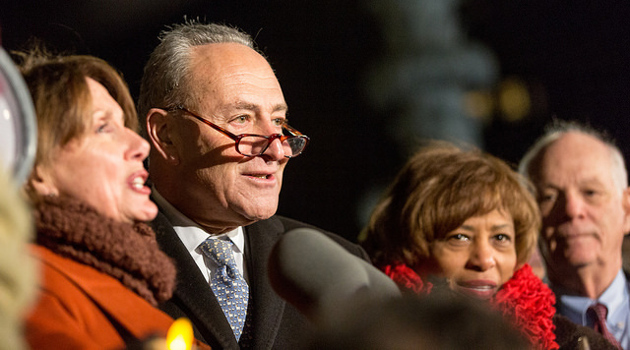Given the speed of the modern news cycle, politicians and political pundits are often not held accountable for failed predictions. This is especially troublesome when those predictions were so obviously made in bad faith, as was the case with much of the opposition to last year’s tax reform.
Brian Riedl has an excellent article that attempts to provide some measure of accountability for the reckless hysterics that preceded passage of the Tax Cuts and Jobs Act.
[E]ven now, the critics haven’t backed down. After their “middle-class tax hike” narrative was exposed as fraudulent, some shifted to mocking the middle-class tax cuts as too small. Nancy Pelosi dismissed $1,000 tax cuts for the middle class as “crumbs,” despite how vital that money can be to millions of families who live paycheck-to-paycheck. (There is no record of Pelosi complaining about the Obama White House’s 2012 websitetouting $1,000 tax cuts from the payroll tax holiday.)
When the “crumbs” narrative fell flat, Democrats moved on to their last redoubt: the argument that greedy corporations are diverting too much of their tax cut savings into stock buybacks and putting too little towards worker salaries.
Yes, the purpose of business tax cuts is to encourage business investment, which ultimately drives long-term wage growth. But stock buybacks are a predictable short-term use of tax cut savings while businesses ramp up their investment plans—and most stock buyback dollars will also be rechanneled through the financial system into pro-growth investments. Had lawmakers intended all these business savings to immediately subsidize workers, they would have skipped the corporate middleman and simply enlarged the individual tax relief (which is where most of the tax cuts were going already).
There’s a lot more good stuff in the piece, including a look back at some of the more outrageous claims made during the tax reform debate, so I’d highly recommend reading the whole thing.
Why does any of this matter now? Well, tax reform is hardly done. TCJA was not perfect. For the sake of compromise, some reforms were watered down, while new problems were also introduced.
To have any chance at all of getting a second round of reform, the lies from the first round must be corrected. Moreover, widespread misinformation will make more difficult the work of limiting government and keeping more dollars in the hands of those who earn them.
———
Image credit: Lorie Shaull | CC BY-SA 2.0.

